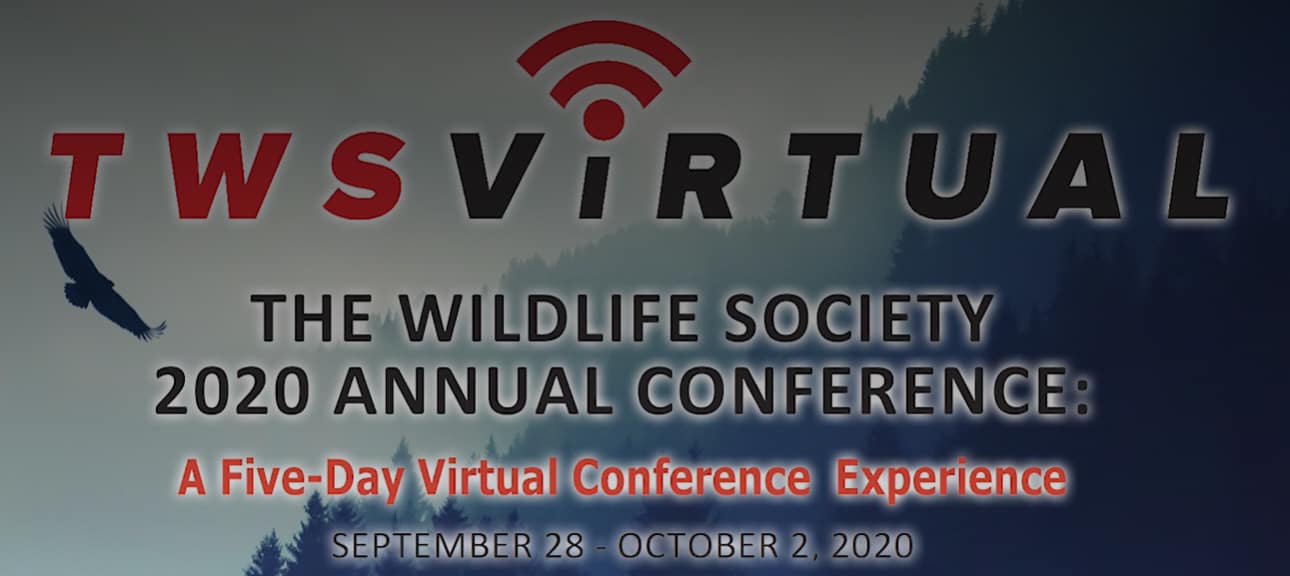Share this article
TWS2020: Plenary calls to ‘keep science scientific’
The 2020 TWS Virtual Conference kicks off Monday, with plenary presenters urging to “keep science scientific.”
While the conference is virtual, the platform allows for a rarity when it comes to in-person conferences — a chance for a one-on-one dialog between conference participants and presenters as they take on controversial topics. Participants can view the plenary on the virtual platform Monday from 12 p.m. to 2 p.m. Eastern Time, with the question-and-answer session during the last half-hour. Although the talk will continue to be available on the platform, watching it live will be the only chance to engage with the presenters.
“My theme this past year while president of TWS has been defending science,” says TWS President Gary White. “Yet I also know that in the broader world, science is being denied, discredited, ignored and often twisted.”
This year’s plenary features John Bohannon, a science journalist and director of science for the artificial intelligence company Primer; Gabriela Chavarria, chief curator at the Denver Museum of Science; and Alan Wentz, recipient of the 2019 Aldo Leopold Memorial Award.
Bohannon noted that a conservation movement, founded in part by sport hunters taking on the damage caused by market hunting, continues to face new challenges from wildlife markets around the world. Those markets can spread zoonotic disease and may have helped spread COVID-19, he said.
“That’s the origin of The Wildlife Society,” he says. “Here, we are almost a century later talking about these markets and the pressures of the industrialized world on animal populations in the wild.”
Listen as Bohannon challenges wildlifers to become active on Twitter and learn to love pre-print platforms and explains why they should count themselves lucky — but stay vigilant.
Chavarria, the Caesar Kleberg Keynote speaker, will talk about ongoing threats to the world’s biodiversity and what conservationists need to do to tackle the challenges ahead. “We need to be creative. We need to work collaboratively and we need to find ways where we can help these species,” she says.
Wentz will share lessons from his career in conservation, including 21 years working for wetlands protections with Ducks Unlimited, his efforts to get lead out of ammunition and his concerns about recent interpretations of “take” by the Interior solicitor that he fears will undercut the Migratory Bird Treaty Act. “It does serve as another lesson to all of us about policy,” he said. “Just because a law is passed doesn’t mean the struggle is over.”
During the plenary, speakers will also discuss the importance of diversity in the wildlife field and efforts TWS is making to encourage it. Other speakers include TWS CEO Ed Thompson; Scott Aikin, national Native American program coordinator for the U.S. Fish and Wildlife Service; 2020 Aldo Leopold Memorial Award recipient John Organ; and Dave Hewitt, director of the Caesar Kleberg Wildlife Research Institute, the plenary’s sponsor.
Header Image: Plenary speakers will address keeping science scientific at the 2020 TWS Virtual Conference. Credit: TWS








